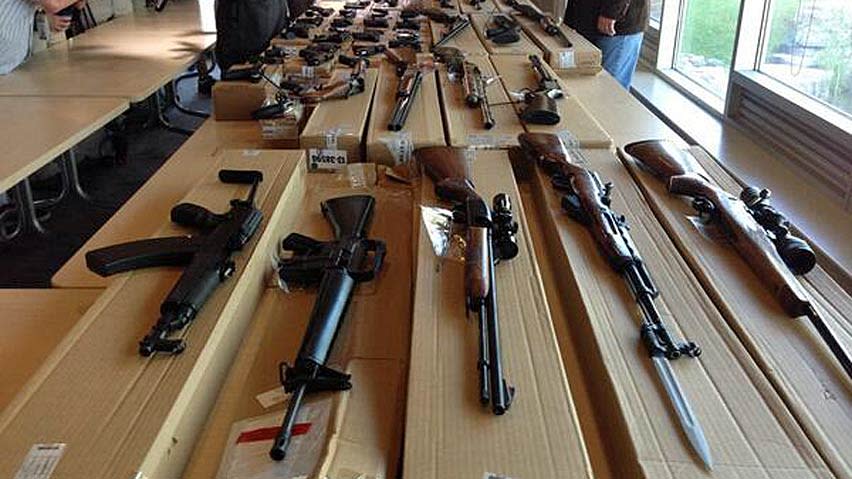Project Traveller warrants sensitive, could taint public, court hears

A court fight by the CBC and seven media organizations to unseal search warrants tied to this spring’s police raids in Toronto has quickly become bogged down.
Lawyers for seven people arrested in June as part of Project Traveller appeared in court this morning demanding they be allowed to take part.
They argue sensitive police affidavits used to get search warrants should not be released to the public for fear the details will be published, and could taint potential jurors at a trial.
One of the defence lawyers asking to intervene represents Monir Kassim, one of the men who appeared in a now infamous photo alongside Mayor Rob Ford.
Media outlets are asking for access to the search warrants to see whether there is any police evidence that Ford has associations with members of the Dixon City Bloods gang.
Justice Downes decided to proceed only with arguments over whether wiretaps and information revealing a secret police technique can be made public.
But he told the court he will render no ruling until next Monday.
He also told the court he will not authorize the release any of the search warrant materials until another hearing involving all media, defence and Crown counsel to be held Sept. 20.
The Crown argues the warrant materials should not be made public, because they contain police surveillance obtained through electronic interceptions.
The Crown revealed Thursday there are more than 80 warrants, based on dozens of police affidavits contained in 36 separately sealed packages at various courthouses.
Prosecutor Jeff Levy is asking for three to six months to allow time to review and redact information about wiretaps and more than two dozen confidential informants to then supply them to lawyers. Only then, Levy says, should all parties return to court to begin arguments about what should or should not be released to the media and public.
Media lawyer Peter Jacobsen, who represents CBC and six other news outlets, complained bitterly to the judge that the Crown is only now revealing the full number of search warrants.
"It feels like hide and seek for us. We keep trying to find out how many there are and we keep being told different stories," Jacobsen told reporters outside of court. "It may be the courts administration, it may be police, it may be the Crown — I don’t know who's at fault. I don’t know if they are overwhelmed and disorganized to this extent ... or if they are just stonewalling."

